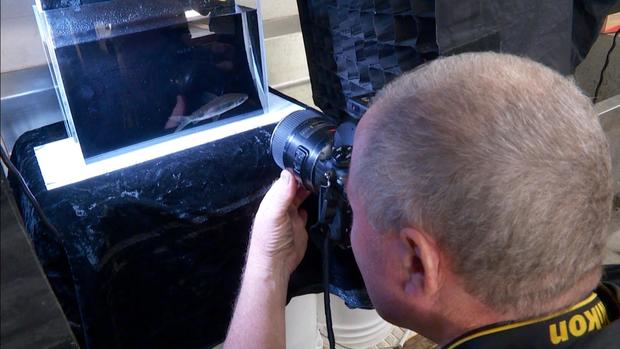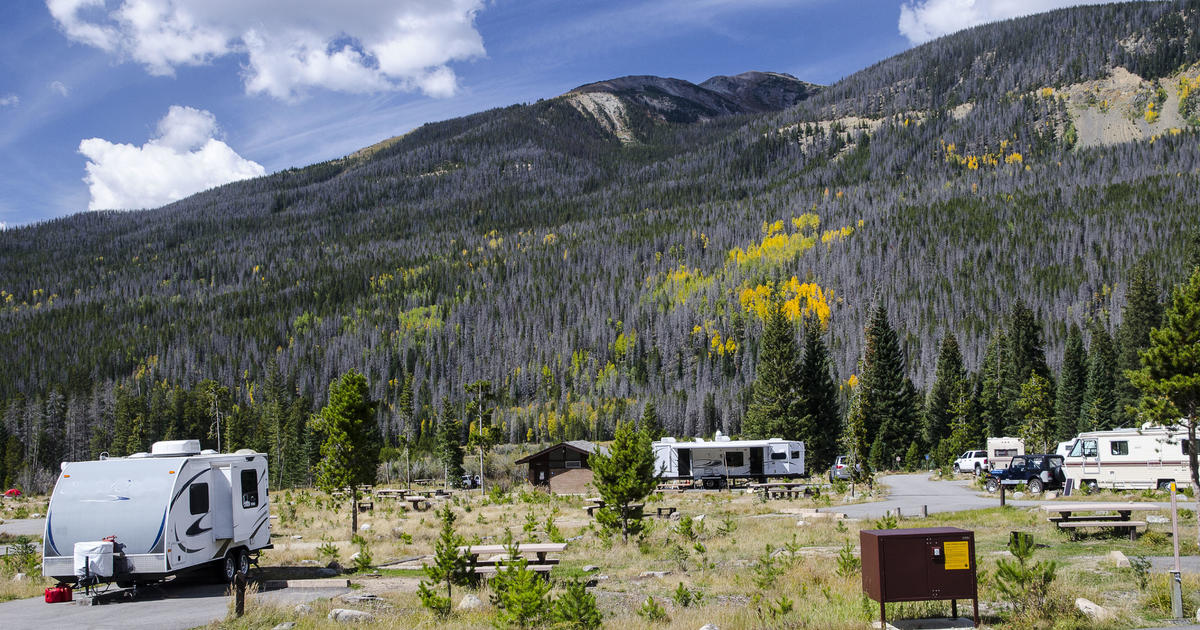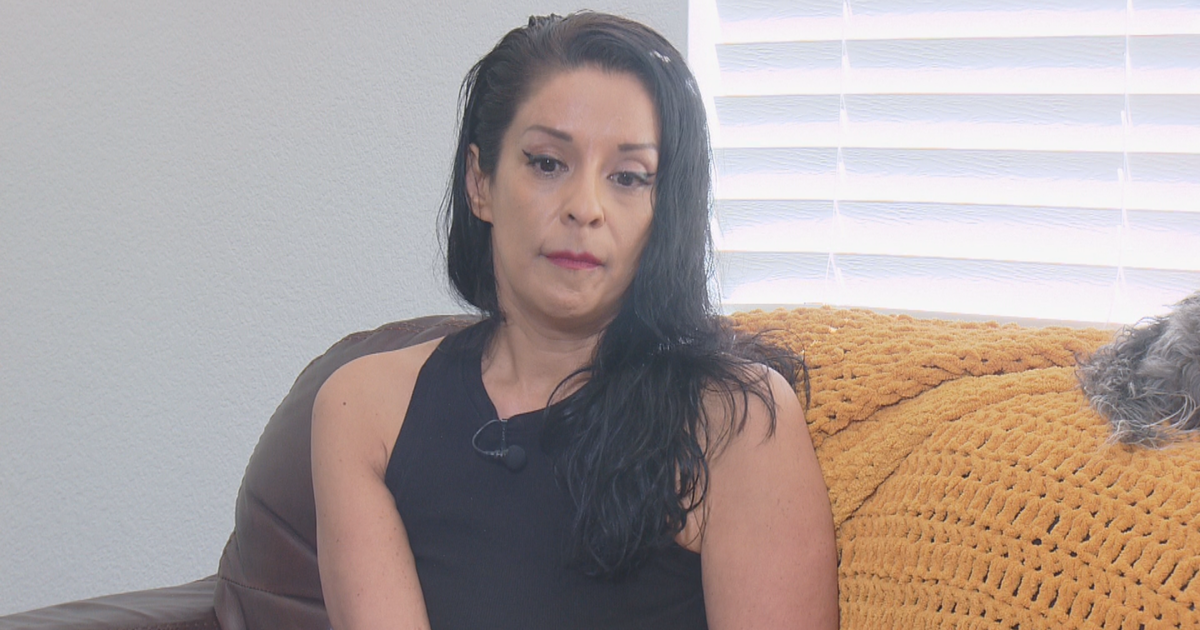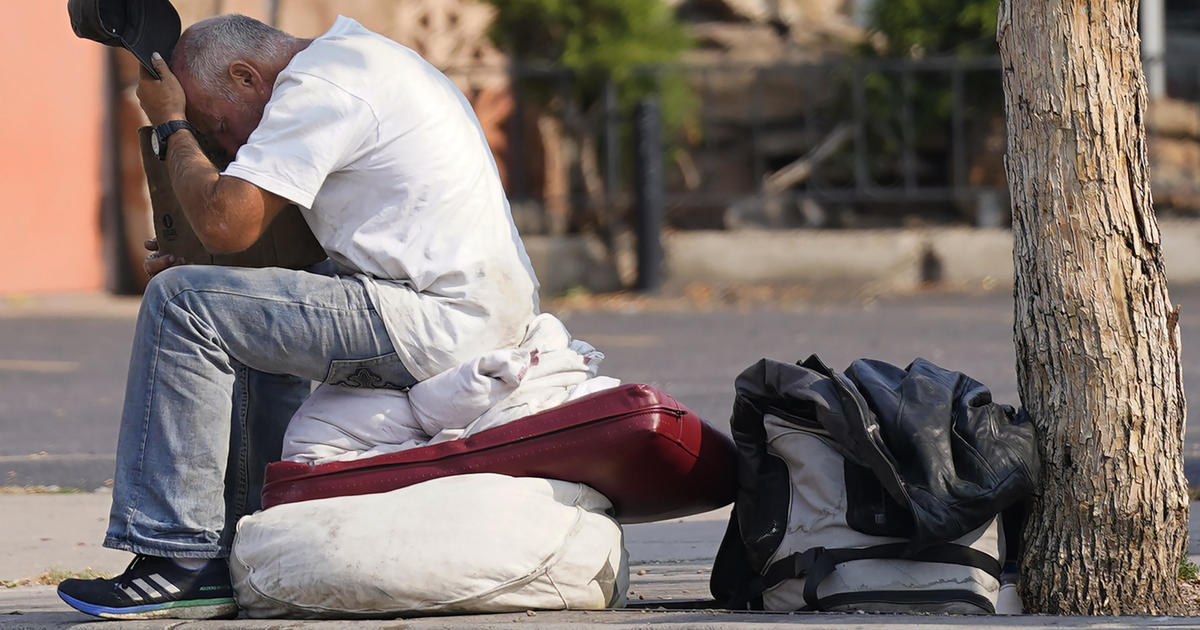National Geographic Photographer Joel Sartore Gets Special Access To Species At Denver Zoo
DENVER (CBS4) – National Geographic photographer Joel Sartore returned to the Denver Zoo on Thursday to capture more photos of rare species for his ongoing project the Photo Ark, which has collected almost 10,000 different images since 2006.
"It's about getting good quality, studio portraits of every species in captivity around the world," Sartore told CBS4. "The goal is to get them to look them in the eye and care, try to lessen the extinction crisis that's coming."
After spending 17 years traveling the world to capture animals in the wild, he realized the need to not only showcase smaller animals but also raise awareness for the rapid loss of certain creatures globally. Sartore says that around half of all species could be extinct in the next 50 years. He estimates there are 15,000 alive now that he wants included in the Photo Ark.
"That's very detrimental to the planet and very detrimental to us," Sartore said. "Aren't these animals magnificent? Don't we want to preserve them? After all when we save them, we're saving ourselves?"
His approach uses a black and white background and studio lighting to help each image of the animal appear vivid with the correct colors. It also isolates each one so there is no size comparison.
"A mouse is every bit as big as a rhino and they also can really be seen," he said. "Here we can really see them and look them in the eye and get a feeling that they're intelligent and deserve a basic right to exist."
His visit to the zoo focused on fish in the morning, some species he says cannot be found anywhere else because local staff have taken an interest while others have passed. The salt and fresh water fish he captured on this trip help to highlight the smaller species that are just as important but often forgotten.
"These are the small animals that really make the world's ecosystems run," Sartore said. "Zoos are really the arks going forward, a lot of what I photographed only exist in zoos now."
Sartore spent time in a part of the zoo visitors cannot access. It is an area where staff are trying to save species so they can return to the wild and join other animals in the public sections of the zoo. Inside a hallway surrounded by fish tanks, he set up a shoot of all these fish using several lights and a small tank to single out each species. He even used a paintbrush to help the fish get in the perfect angle for his photos.
"We provide him this incredible access to our animals in an environment where he's able to get these photographs," said Jake Kubie, the director of communication for the Denver Zoo. "What Joel is doing is exactly what we're doing."
The zoo helps to protect 4,000 animals each year. The cost of that service is funded by admission tickets, membership, money spent at the zoo, and fundraisers like the Force of Nature Gala that Sartore was the keynote speaker at on Thursday night.
"They walk away from the zoo with an understanding and appreciation and hopefully a motivation to make a difference to help protect these animals," Kubie said.
Sartore wants to challenge the public not only to support these conservationists but also cutting down on the individual impact. He says removing products or spending resources on your lawn can make a difference. Eating less meat and using a smaller car can also help, even insulating your home.
"If you say you care about the environment and you're not a member of the Denver Zoo, you're just pretending," Sartore said.
Each year, 100 million people visit zoos across the country, according to Sartore. They work together to raise awareness and save these animals, but their methods are also unique. A photographer sharing photos like works of art and a zoo helping visitors to see creatures up close. The Photo Ark will reach 10,000 species by the end of the year and the goal of 15,000 could be reached in another decade.
"You have to really hear, see, and smell, and watch an animal move to really understand and appreciate it and want to save it," Sartore said. "It's a big archive for sure but it's suppose to move people to care while there is still time to save most of the species on the planet."
LINKS: denverzoo.org | nationalgeographic.org/projects/photo-ark/ | joelsartore.com




